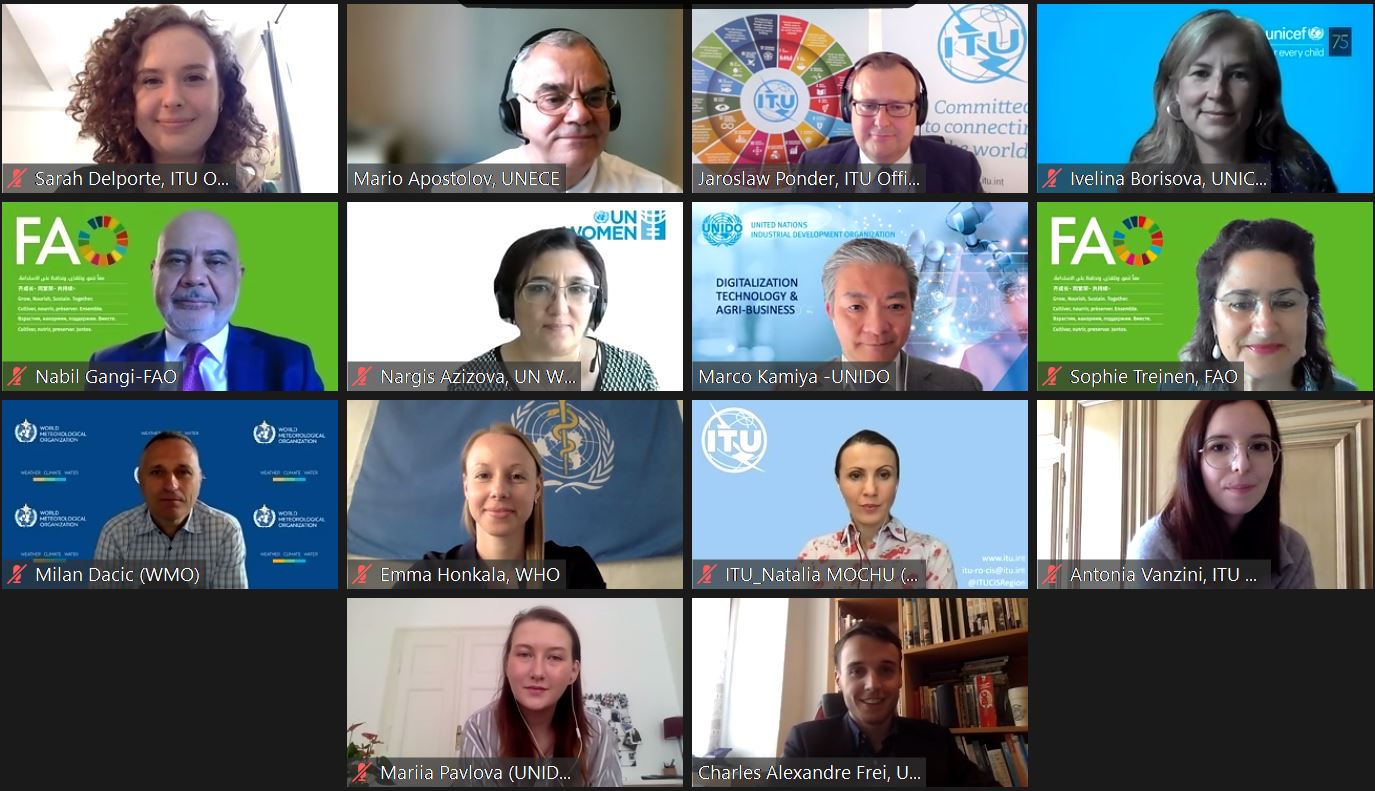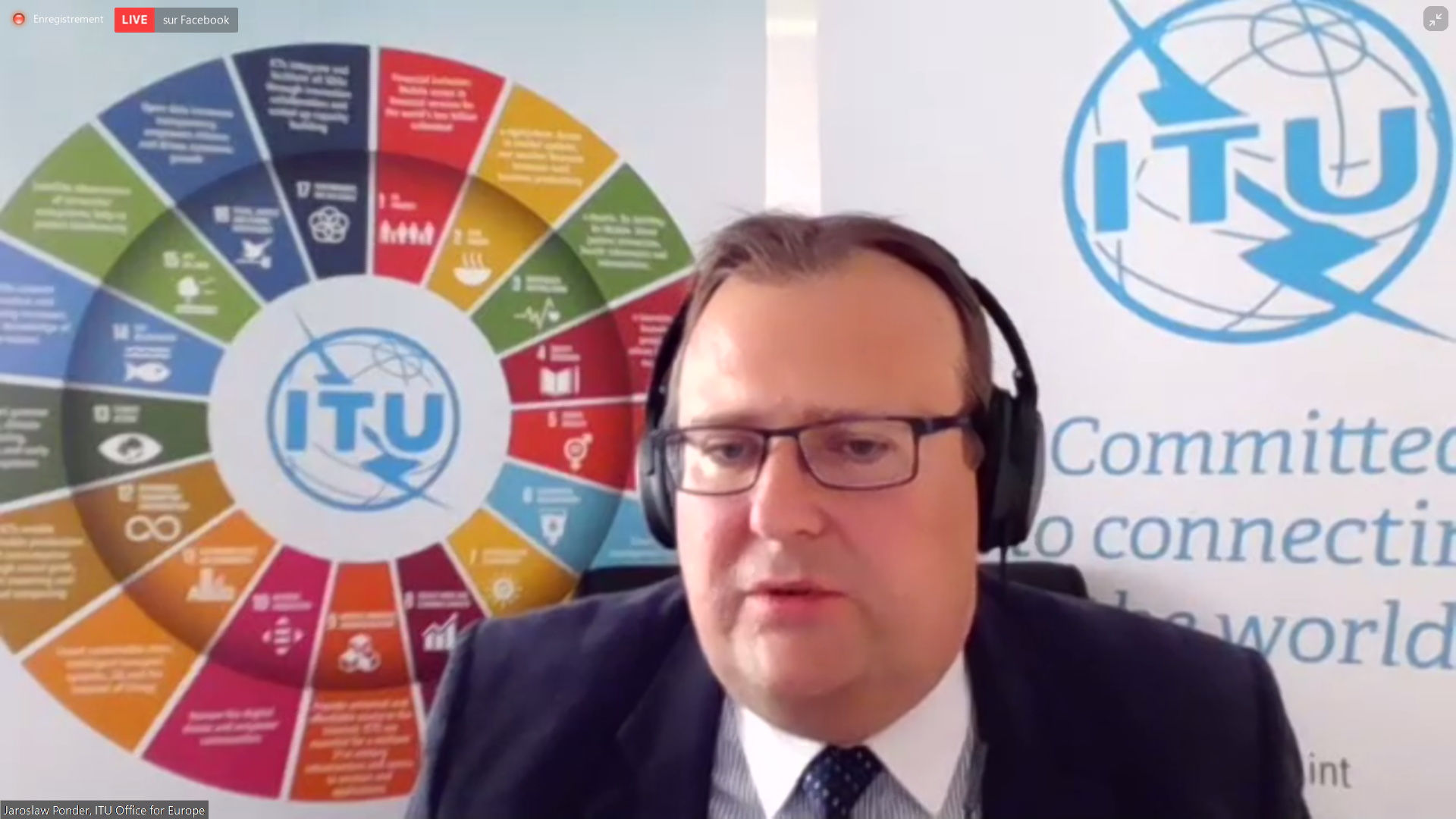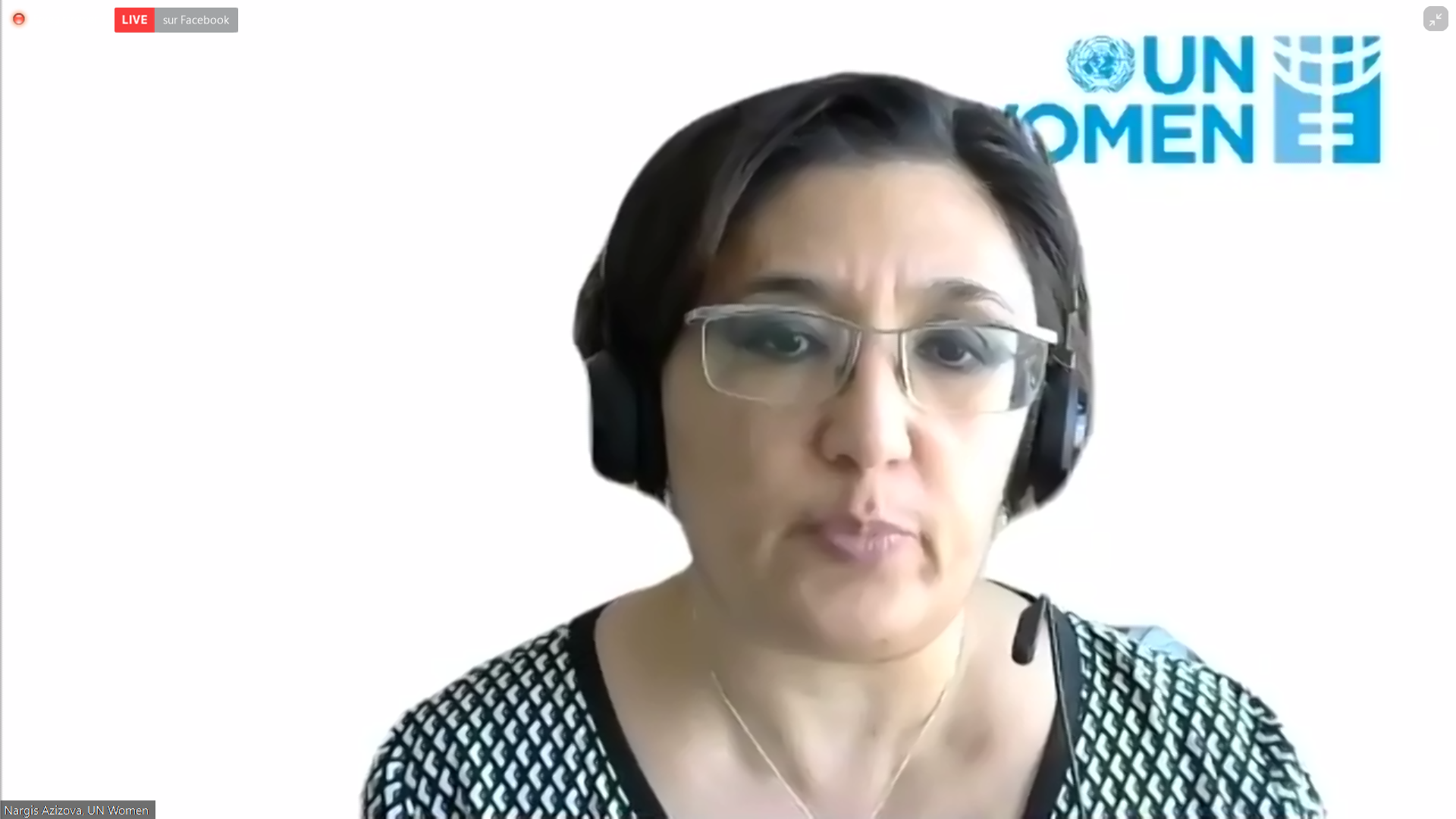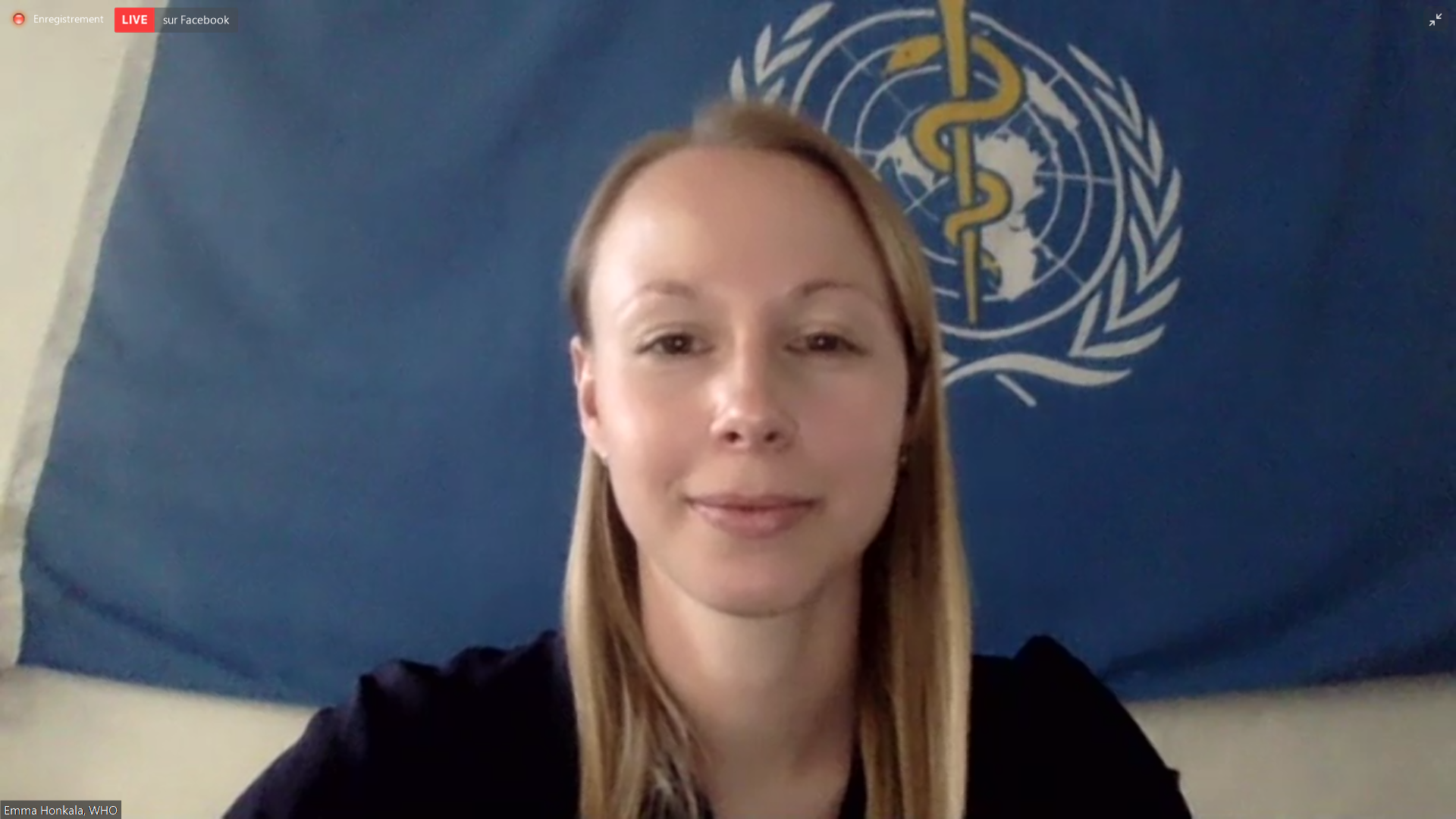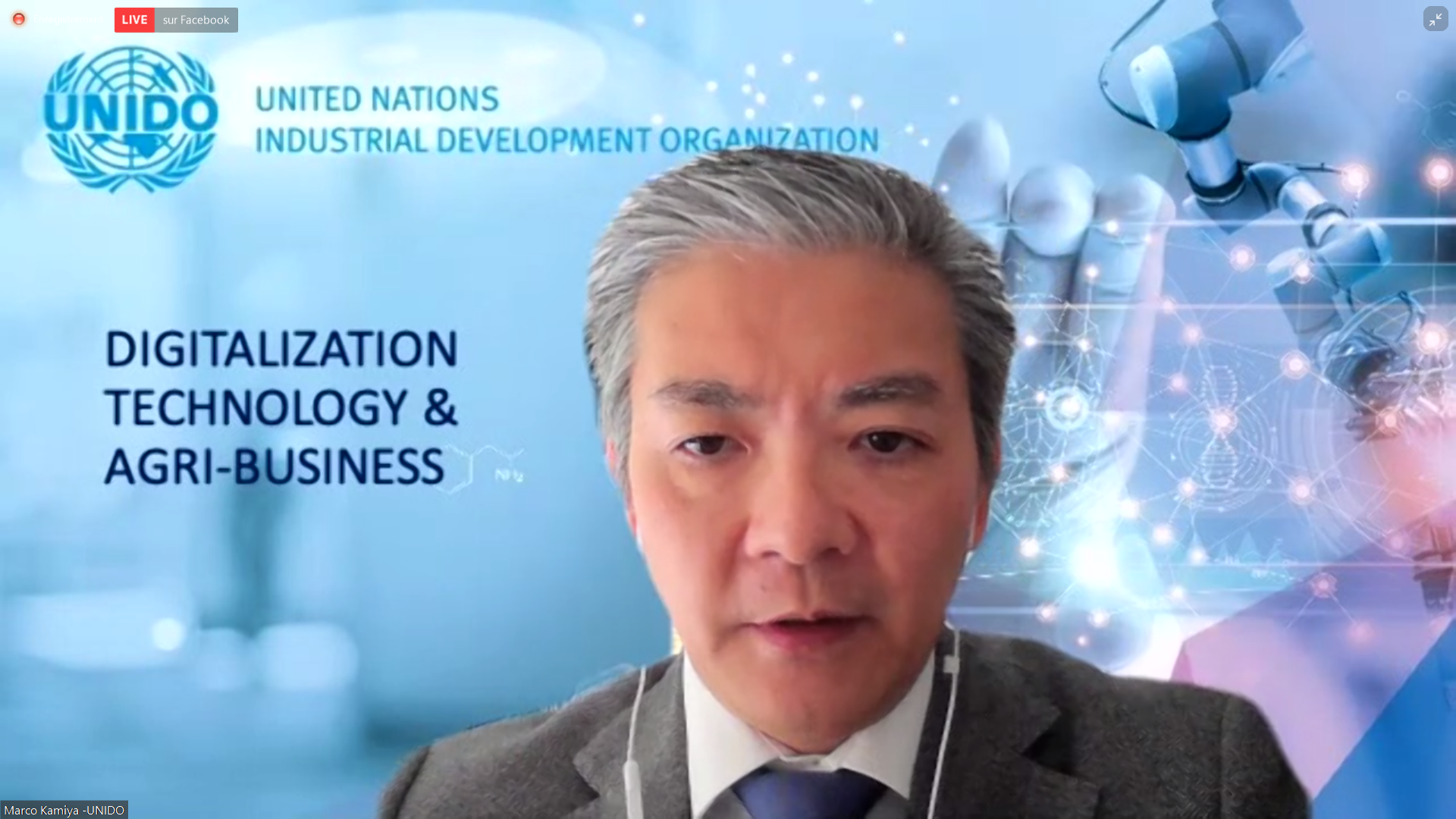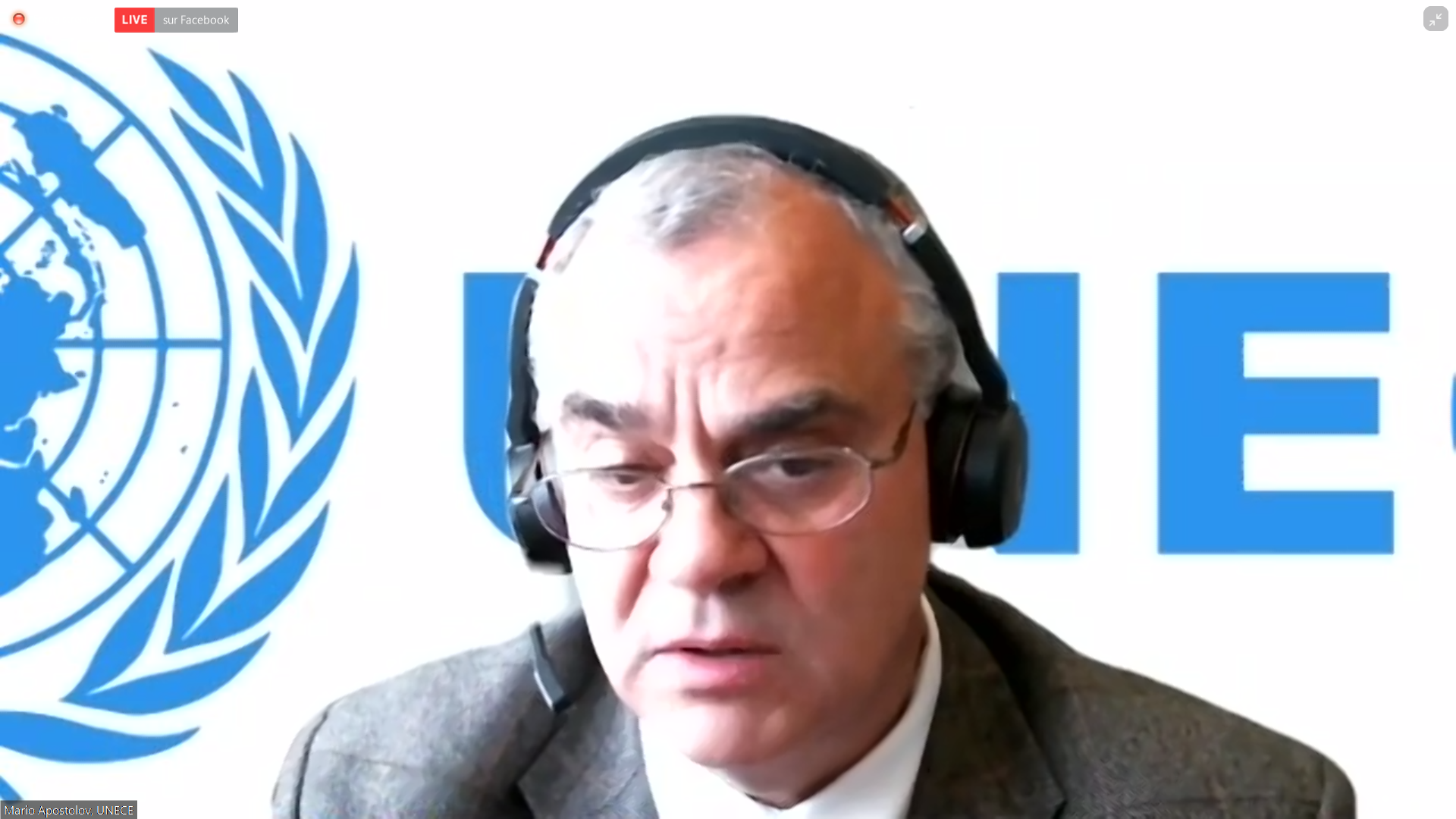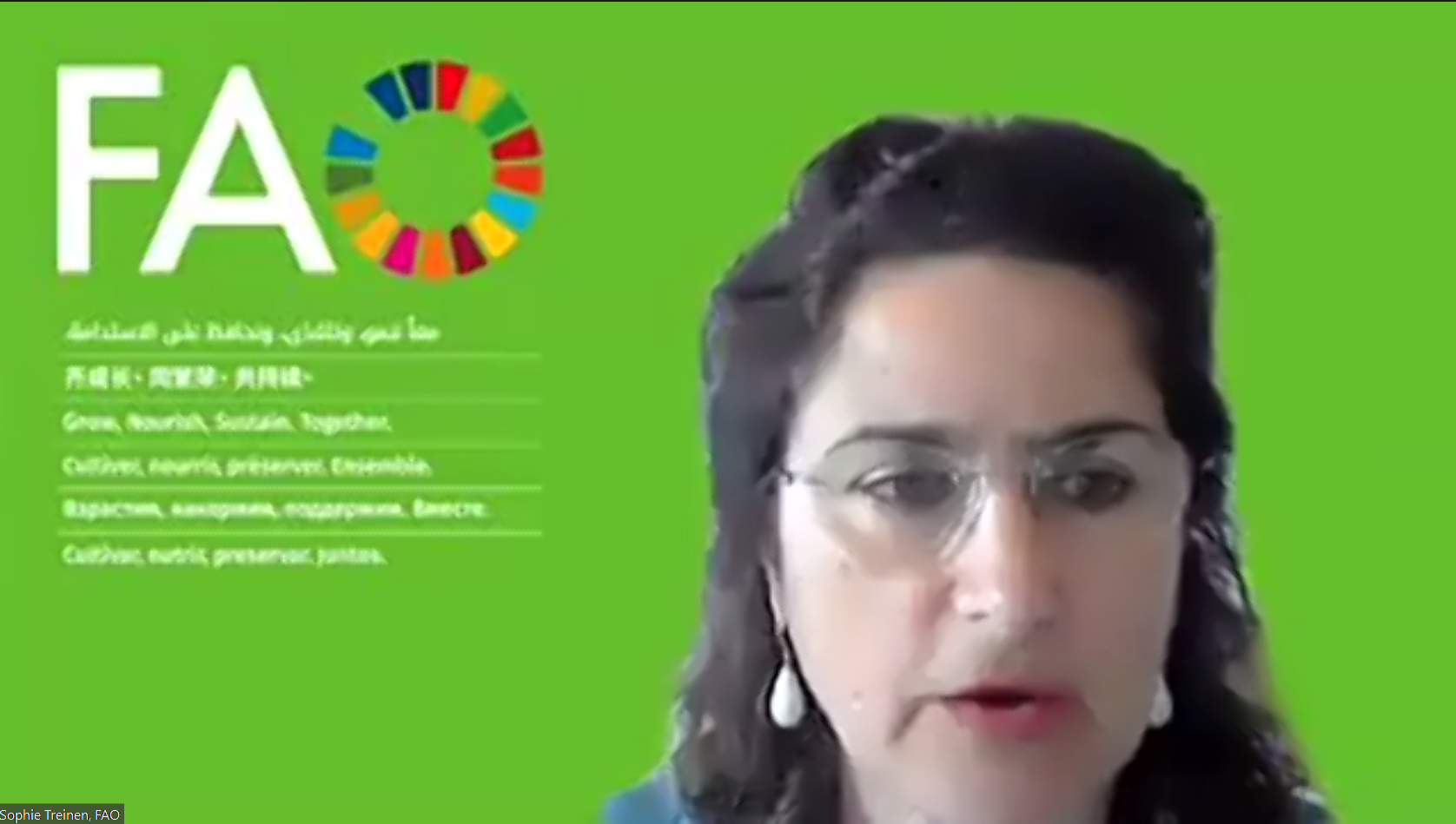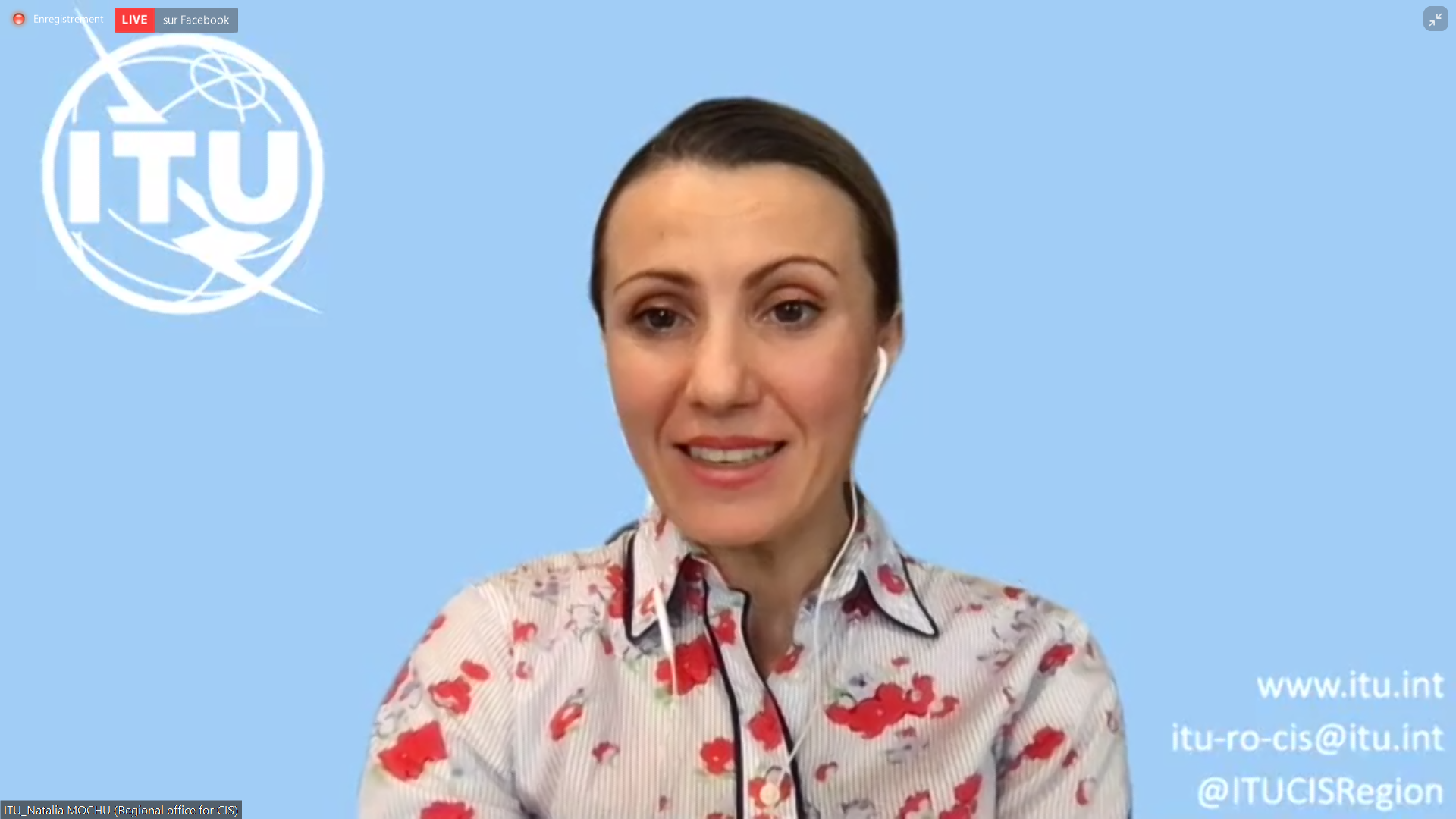Implementation of WSIS Action Lines at the Regional Level: Digital transformation in Europe and Central Asia
United Nations Digital Transformation Group for Europe and Central Asia
Session 308
Within the framework of the 2021 World Summit for Information Society (WSIS) Forum, the special session “Driving the WSIS Action Lines to foster digital transformation in Europe and Central Asia”, will be held virtually on 26 April from 12:00 to 13:00 CET. This session is organized by the United Nations Digital Transformation Group for Europe and Central Asia (UNDTG4ECA). The UNDTG4ECA, co-led by ITU and UNECE, is a multiagency platform facilitating coordination of the efforts of the UN system in accelerating digitalization across the region in accordance with the WSIS Action Lines and working towards the achievement of the UN Sustainable Development Goals.
“ICTs for Inclusive, Resilient and Sustainable Societies and Economies (WSIS Action Lines for achieving the Sustainable Development Goals)” is the focus of the 2021 WSIS. In the wake of COVID-19, the role of ICTs and services, and the digital infrastructure that countries ride and scale on have become central to maintaining economic and societal activity. This special session will build upon the Cross-Cutting Session on Digitalization, held within the framework of the UN Regional Forum for Sustainable Development in the UNECE Region, where increasing multistakeholder, cross-sectoral, and inter-agency coordination at the national and regional level has been recognized as key to capturing the enabling potential of ICTs in achieving the SDGs.
The session will draw attention to the efforts of the UN agencies undertaken in Europe and Central Asia and advancing digital transformation. This session will in particular highlight regional and national activities fostering multi-stakeholder partnerships and providing reference to good practices advancing the implementation of the WSIS Action Lines.
This session will also provide a platform for multi-stakeholder discussion on challenges and opportunities identified at the national/regional level. Each UN agency will have the opportunity to draw attention to the flagship initiative. A selection of initiatives and projects undertaken by UN Agencies in Europe and Central Asia can be found in the recent ICT Solutions Stocktaking Report by UNDTG4ECA (click here to download the copy). This special session is addressed to representatives of ministries, regulators, cyber authorities, telecom operators, universities and general education institutions, telecommunication equipment manufacturers, research and design institutes, software developers, and other interested stakeholders of the UNDTG4ECA Member States, Sector Members, and Associates from Europe and Central Asia.

Mr. Apostolov provides advisory support for both the Economic and Integration and Trade Divisions. He has been servicing intergovernmental bodies of experts and policy makers on trade facilitation in the framework of the UN Centre for Trade Facilitation and Electronic Business, the UN Special Programme for the Economies of Central Asia (SPECA), and networks in Southeast Europe and the Eurasian Economic Union for over 17 years. His expertise includes national trade facilitation bodies, the Single Window for export, import, and transit clearance, regional trade integration, and trade facilitation reform. Mr Apostolov has a M.A. from the Moscow State Institute of International Relations and a Ph.D. from the Graduate Institute of International and Development Studies at the University of Geneva. He teaches a course on the Dynamics of Regional Cooperation and Diplomacy at the International University in Geneva. Some areas of his published works include trade facilitation, regional cooperation and integration, and the geopolitics of Christian-Muslim relations.
.jpg)
Emma Honkala works as a consultant in the Digital Health Flagship in the WHO Regional Office for Europe. Emma provides assistance on all aspects of digital health to support health systems strengthening in the 53 Member States of the WHO European Region. She guides countries in their development of national digital health programmes and supports the strengthening of country capacity for digital health and integrated health information systems.
Emma is a global health professional with strong personal interest towards working in the intersection of health and technology, advancing and advocating the public health agenda. She is passionate about innovation, and the different ways in which technology can be used to increase equity in access to health services and accelerate progress towards universal health coverage.
Economist. Prior to commencing her work in a position at ECA RO in 2018, UN Women, Nargis worked for more than 15 years at the United Nations in various capacities as UNDP Assistant Representative, UNIFEM/UN Women Gender and Governance Advisor in Tajikistan, UN Women manager for the interagency regional migration programme. Prior to joining the UN, Nargis for more than 10 years worked at the Center for Strategic Studies under the President of Tajikistan. Nargis led preparations for B+25 regional and sub-regional reviews in 2019 and for other intergovernmental processes on GEWE.
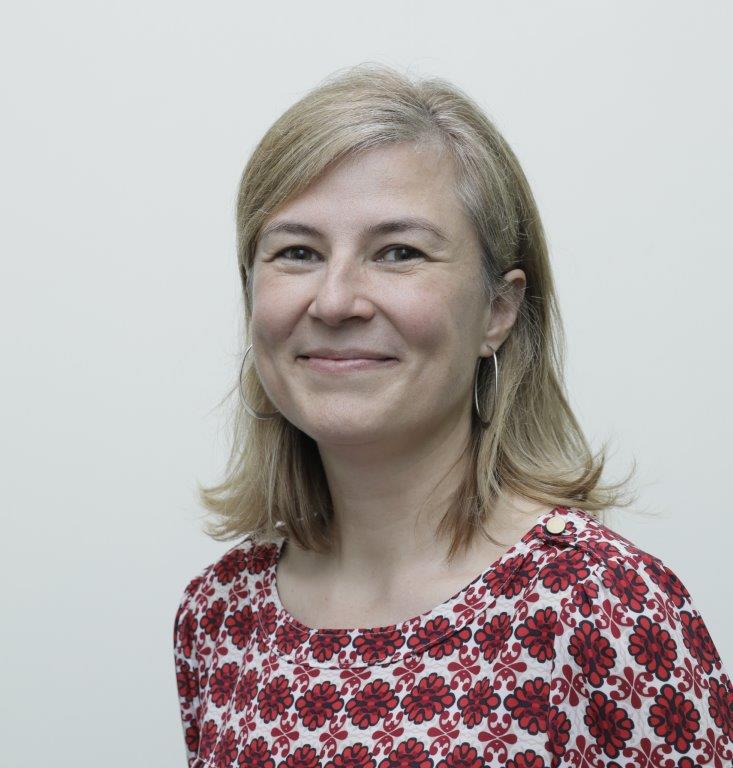.jpg)
Ivelina is UNICEF’s Early Childhood Development Advisor (ECD) for the Europe and Central Asia Region. In this role she is responsible for regional technical assistance to 22 countries offices and results management for the regional priorities on early childhood development. Prior to this, Ivelina worked as UNICEF’s global lead in the area of early childhood education. She was responsible for global advocacy efforts and partnerships, as well as strategic guidance aimed at achieving equitable access to quality pre-primary education by 2030. Ivelina has rich field experience across many regions and countries. Prior to joining UNICEF she worked as the Director of Impact and Innovations for ECD at Save the Children, managing a broad portfolio of global initiatives, innovations and multi-donor funds. She is a national of Bulgaria and holds a Doctorate in Human Development and Education from the Harvard University.

Mr. Milan Dacic serves as Representative for Europe of the World Meteorological Organization (WMO). He spent part of his career as a researcher and another part in public administration and international organizations (some duties: Director of Hydrometeorological Service and Permanent Representative of Serbia with WMO, Head of international relations of the Yugoslav Federal Hydrometeorological Institute, UNFCCC, and IPCC Focal Point, a senior officer of the Ministry of Environmental Protection working on climate-related issues, Director of Serbia’s Country Office of the Regional Environmental Centre for Central and Eastern Europe - REC, WMO consultant). Milan was instrumental in setting up of sub-regional SEE Virtual Climate Change Center and worked on advancing its operational functions as science to policy interface. While working as WMO Consultant Milan contributed to the design of the South East European Multi-Hazard Early Warning System for the Western Balkans and Turkey. At the country level he was coordinating the creation, negotiation, and final adoption by the Parliament of the Law on Meteorological and Hydrological Activities in Serbia. He actively contributed to the design of the legislative framework and operational practice in disaster risk management. While working in WMO, he engaged with eighteen countries of SEE to develop and agree on the data policy for improved data sharing supporting the global and regional data processing and forecasting centers in Europe.
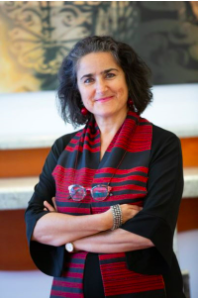
Sophie Treinen is working at the Food and Agriculture Organization of the United Regional office for Europe and Central Asia, where she provides assistance to the countries of the region addressing the role of information, communication and knowledge sharing. Her major responsibility is to develop approaches for developing institutional and individual capacities. She supports the development of national digital agriculture strategy, and pays particular attention to systems, which make the most of digital and more conventional technologies to address stakeholders’ needs. She is also applying participatory approaches and examining gender issues linked to the introduction of new digital Information and Communication Technologies. With 30 years of experience, Sophie possesses a varied experience in raising awareness for sustainability issues within the UN, governments, private sector and civil society. She was the FAO Focal Point for the World Summit on the Information Society Action Line on e-agriculture and served as the Organization’s Communication Lead for the UN Global Information Society Group.
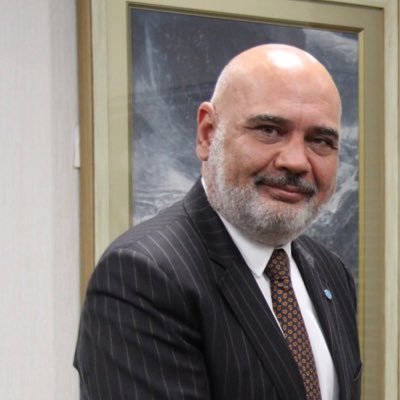
Gangi, a national of Canada, has a background in engineering (Ain Shams University in Cairo), project and financial management (American University of Cairo) and business administration (Henley Management College and Brunel University in the United Kingdom).
Gangi held the same post in FAO’s Regional Office for the Near East and North Africa in Cairo, his city of birth. Before that, he headed the Organization’s Shared Services Centre in Budapest, providing support to FAO’s backbone operations, including human resources, financial servicing, and asset and travel management.
During his career with FAO Gangi assumed senior-level positions in its headquarters in Rome, managed staff benefits, pensions, human resources, and social security for Rome-based UN agencies.
Prior to joining the United Nations, he held senior management positions with multilateral and non-governmental organizations, managing programmes and projects funded by the European Union and the United States Agency for International Development. Nabil Gangi has travelled extensively and has led several organizational development missions in more than 25 countries throughout his professional career.
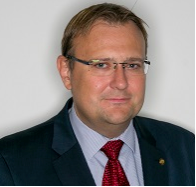
Mr. Jaroslaw K. Ponder is Head of the Office for Europe at the International Telecommunication Union (ITU) (Geneva, Switzerland). He represents ITU in Europe and directs actions, projects, initiatives and experts groups targeting 46 countries of the Europe Region. His portfolio includes set of Regional Initiatives for Europe, designed by the European Member States and focusing on the ICT Infrastructure, Digitization, Digital Inclusion, Accessibility, Innovation and Cybersecurity.
Along the professional career, Mr. Ponder held official positions in the public sector and was a contributor to the legislative projects having the impact on the public policy. Since 2014 Mr. Ponder has been working for ITU holding diverse positions in the General Secretariat, Telecommunication Development Bureau, and Regional Presence, addressing complexity of information society development and digital transformation at national, regional, international level, including United Nations level. For several years he has managed ITU’s work on the United Nations World Summit on the Information Society (WSIS) process, leading towards the establishment of the flagship platforms, including WSIS Forum, WSIS Prizes, WSIS Stocktaking, others.
-
 C1. The role of governments and all stakeholders in the promotion of ICTs for development
C1. The role of governments and all stakeholders in the promotion of ICTs for development
-
 C2. Information and communication infrastructure
C2. Information and communication infrastructure
-
 C3. Access to information and knowledge
C3. Access to information and knowledge
-
 C4. Capacity building
C4. Capacity building
-
 C5. Building confidence and security in use of ICTs
C5. Building confidence and security in use of ICTs
-
 C6. Enabling environment
C6. Enabling environment
-
 C7. ICT applications: benefits in all aspects of life — E-government
C7. ICT applications: benefits in all aspects of life — E-government
-
 C7. ICT applications: benefits in all aspects of life — E-business
C7. ICT applications: benefits in all aspects of life — E-business
-
 C7. ICT applications: benefits in all aspects of life — E-learning
C7. ICT applications: benefits in all aspects of life — E-learning
-
 C7. ICT applications: benefits in all aspects of life — E-health
C7. ICT applications: benefits in all aspects of life — E-health
-
 C7. ICT applications: benefits in all aspects of life — E-employment
C7. ICT applications: benefits in all aspects of life — E-employment
-
 C7. ICT applications: benefits in all aspects of life — E-environment
C7. ICT applications: benefits in all aspects of life — E-environment
-
 C7. ICT applications: benefits in all aspects of life — E-agriculture
C7. ICT applications: benefits in all aspects of life — E-agriculture
-
 C7. ICT applications: benefits in all aspects of life — E-science
C7. ICT applications: benefits in all aspects of life — E-science
-
 C8. Cultural diversity and identity, linguistic diversity and local content
C8. Cultural diversity and identity, linguistic diversity and local content
-
 C9. Media
C9. Media
-
 C10. Ethical dimensions of the Information Society
C10. Ethical dimensions of the Information Society
-
 C11. International and regional cooperation
C11. International and regional cooperation
-
 Goal 1: End poverty in all its forms everywhere
Goal 1: End poverty in all its forms everywhere
-
 Goal 2: End hunger, achieve food security and improved nutrition and promote sustainable agriculture
Goal 2: End hunger, achieve food security and improved nutrition and promote sustainable agriculture
-
 Goal 3: Ensure healthy lives and promote well-being for all
Goal 3: Ensure healthy lives and promote well-being for all
-
 Goal 4: Ensure inclusive and equitable quality education and promote lifelong learning opportunities for all
Goal 4: Ensure inclusive and equitable quality education and promote lifelong learning opportunities for all
-
 Goal 5: Achieve gender equality and empower all women and girls
Goal 5: Achieve gender equality and empower all women and girls
-
 Goal 6: Ensure access to water and sanitation for all
Goal 6: Ensure access to water and sanitation for all
-
 Goal 7: Ensure access to affordable, reliable, sustainable and modern energy for all
Goal 7: Ensure access to affordable, reliable, sustainable and modern energy for all
-
 Goal 8: Promote inclusive and sustainable economic growth, employment and decent work for all
Goal 8: Promote inclusive and sustainable economic growth, employment and decent work for all
-
 Goal 9: Build resilient infrastructure, promote sustainable industrialization and foster innovation
Goal 9: Build resilient infrastructure, promote sustainable industrialization and foster innovation
-
 Goal 10: Reduce inequality within and among countries
Goal 10: Reduce inequality within and among countries
-
 Goal 11: Make cities inclusive, safe, resilient and sustainable
Goal 11: Make cities inclusive, safe, resilient and sustainable
-
 Goal 12: Ensure sustainable consumption and production patterns
Goal 12: Ensure sustainable consumption and production patterns
-
 Goal 13: Take urgent action to combat climate change and its impacts
Goal 13: Take urgent action to combat climate change and its impacts
-
 Goal 14: Conserve and sustainably use the oceans, seas and marine resources
Goal 14: Conserve and sustainably use the oceans, seas and marine resources
-
 Goal 15: Sustainably manage forests, combat desertification, halt and reverse land degradation, halt biodiversity loss
Goal 15: Sustainably manage forests, combat desertification, halt and reverse land degradation, halt biodiversity loss
-
 Goal 16: Promote just, peaceful and inclusive societies
Goal 16: Promote just, peaceful and inclusive societies
-
 Goal 17: Revitalize the global partnership for sustainable development
Goal 17: Revitalize the global partnership for sustainable development
